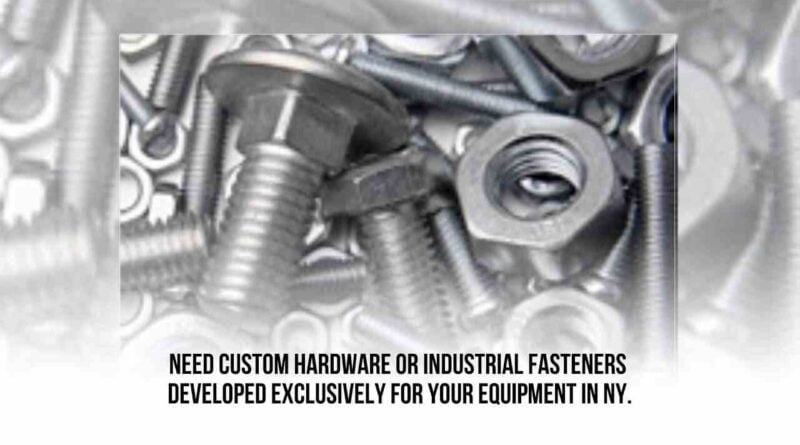Comparing Metal and Nylon Fasteners
Comparing Metal and Nylon Fasteners – Fasteners are essential components in a wide range of industries, from construction and automotive to electronics and furniture. They play a critical role in holding objects together, providing structural stability, and ensuring the longevity of products. Among the many types of fasteners available, metal and nylon fasteners are two of the most commonly used materials. Each offers distinct advantages and disadvantages that make them suitable for different applications. This essay will compare metal and nylon fasteners based on their material properties, durability, cost, and specific applications – tokohasil.com.
Table of Contents
1. Material Properties
The primary difference between metal and nylon fasteners lies in their material composition. Metal fasteners are typically made from materials such as steel, aluminum, brass, or stainless steel. These metals are known for their strength, rigidity, and resistance to deformation. Metal fasteners are often preferred in applications that require high tensile strength and the ability to withstand heavy loads.
On the other hand, nylon fasteners are made from a type of synthetic polymer known as nylon. Nylon is a lightweight, flexible, and non-conductive material. Unlike metal, nylon does not corrode, making it ideal for use in environments where moisture or chemicals are present. Additionally, nylon is non-magnetic, which can be an important property in applications where magnetic interference must be minimized.
2. Durability and Environmental Resistance
When it comes to durability, metal fasteners generally have an edge over nylon fasteners. Metals, particularly stainless steel, offer excellent resistance to wear and tear, making them suitable for long-term applications in harsh environments. Metal fasteners can withstand extreme temperatures, both high and low, without losing their structural integrity. This makes them ideal for use in applications such as automotive engines, industrial machinery, and outdoor structures where exposure to the elements is a concern.
Nylon fasteners, while not as strong as metal, offer unique advantages in terms of environmental resistance. Nylon is resistant to many chemicals, including oils, fuels, and solvents, which can cause metal fasteners to corrode or degrade over time. Additionally, nylon’s non-corrosive nature makes it suitable for use in marine environments or other applications where exposure to saltwater or moisture is common. However, nylon fasteners are susceptible to UV degradation, which can cause them to become brittle and crack when exposed to prolonged sunlight.
3. Weight and Flexibility
One of the significant advantages of nylon fasteners over metal fasteners is their weight. Nylon is a lightweight material, which can be beneficial in applications where reducing overall weight is important, such as in aerospace, electronics, or consumer products. The lighter weight of nylon fasteners also makes them easier to handle and install, especially in large quantities.
In terms of flexibility, nylon fasteners are more forgiving than their metal counterparts. The inherent flexibility of nylon allows it to absorb vibrations and shocks without breaking or becoming deformed. This makes nylon fasteners suitable for use in applications where movement or stress is common, such as in electronics housings, automotive interiors, and furniture assembly.
Metal fasteners, while less flexible, provide greater rigidity and structural stability. They are better suited for applications where maintaining a fixed position and resisting movement is crucial, such as in load-bearing structures, heavy machinery, or high-stress environments.
4. Cost Considerations
Cost is another important factor when comparing metal and nylon fasteners. Generally, nylon fasteners are less expensive than metal fasteners. This is due to the lower cost of raw materials and the ease of manufacturing nylon components. For applications where large quantities of fasteners are required, nylon can offer significant cost savings.
However, the lower cost of nylon fasteners must be weighed against their durability and strength. While nylon may be cheaper upfront, the need for more frequent replacements due to wear, UV degradation, or lower load-bearing capacity could offset the initial savings. Metal fasteners, despite being more expensive, offer a longer lifespan and greater reliability, particularly in demanding applications.
5. Applications
The choice between metal and nylon fasteners often depends on the specific requirements of the application. Metal fasteners are the go-to choice for heavy-duty applications, including construction, automotive, and industrial machinery. Their strength, durability, and resistance to high temperatures and wear make them indispensable in these fields.
Nylon fasteners, on the other hand, excel in applications where weight reduction, corrosion resistance, and flexibility are more important than sheer strength. They are commonly used in electronics, where their non-conductive properties prevent short circuits. Nylon fasteners are also favored in environments with chemical exposure or where the fasteners need to be non-magnetic.
Conclusion
In conclusion, both metal and nylon fasteners have their unique advantages and disadvantages. Metal fasteners offer superior strength, durability, and rigidity, making them ideal for demanding applications that require load-bearing capacity and resistance to extreme conditions. Nylon fasteners, while not as strong, provide benefits such as lightweight construction – baut, flexibility, corrosion resistance, and cost-effectiveness, which make them suitable for less demanding or specialized applications. The choice between metal and nylon fasteners should be based on the specific needs of the application, considering factors such as environmental conditions, load requirements, and cost constraints.


